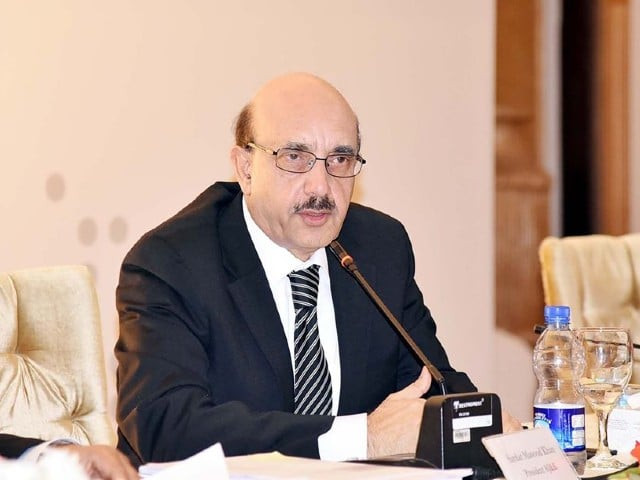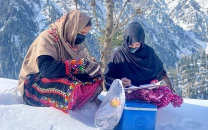AJK president rules out bilateral talks with India, division of Kashmir
Any change in status of G-B could harm the ongoing Kashmir liberation movement, says Masood Khan

Azad Jammu and Kashmir (AJK) President Sardar Masood Khan has ruled out any talks with India in the present situation or any change in the status of Gilgit-Baltistan (G-B) which could harm the ongoing Kashmir liberation movement.
Addressing a function held here to mark the 73rd founding day of the government of Azad Kashmir on Saturday, he said that if India wanted to hold talks, it must withdraw all actions taken about Kashmir after August 5, 2019; cease military operation in the held territory; immediately stop settling non-Kashmiri subjects in the state, and release all political prisoners.
Rejecting bilateral talks with India, the state president said that Kashmir is not a bilateral dispute between Pakistan and India, but it has been debated thrice in the UN Security Council during the last one year, and we will never want the Kashmir issue to be dragged from the world body and confine it to Delhi.
He maintained that the talks if held with India, would not be bilateral but trilateral under the supervision of the United Nations and with the involvement of the genuine representatives of Kashmiris.
India, he said, since 1972 had very cleverly used the ploy of bilateral talks to keep Kashmiris and the United Nations away from the process and added that no talks between India and Pakistan could yield positive results without the participation of Kashmiris.
“By declaring the international issue of Jammu and Kashmir a bilateral matter, India wants to exclude the people of Jammu and Kashmir, the key party to the dispute, and the United Nations or other actor representing the international community for the process for resolving the Kashmir dispute,” he explained.
Masood also rejected apprehensions about the division of Kashmir and said that division of Kashmir was an Indian agenda under which it had bifurcated the state into Jammu and Kashmir and Ladakh after August 5 last year, and had declared them part of the Indian Union. "We would never take any action about Azad Kashmir and Gilgit-Baltistan which could hurt the ongoing Kashmir liberation movement or Pakistan's longstanding stance on the Kashmir issue.
Stressing the need for dialogue between the political leaderships of Azad Kashmir and Gilgit-Baltistan, Sardar Masood Khan hoped that they would be able to adopt some unanimous stand through dialogue and negotiations.
Highlighting the importance of the founding day of the Azad Jammu and Kashmir, AJK president said that the territory liberated in 1947 and a government under the dynamic leadership of Ghazi-e-Millat Sardar Muhammad Ibrahim Khan was founded. He said had India not treacherously and illegally occupied one part of the territory, the entire state of Jammu and Kashmir would have been free and had joined Pakistan.
“Today we mark the Foundation Day of Azad Jammu and Kashmir. This day consecrates the heroic resolve of the people of the valiant people of Kashmir to raise the flag of liberty and self-determination high and to celebrate Kashmir’s eternal bonds with Pakistan.”
Referring to the situation in Indian Illegally Occupied Jammu and Kashmir, AJK president said India is implementing a vicious plan in Kashmir and wants to eliminate the Kashmiris in the next two years.
He said after 1,800,000 domiciles of Kashmir were issued to Indians, the Indian regime was planning to award citizenship rights to five million Hindu citizens from India to change the demography of the disputed region.
He condemned the Indian occupation, genocide, brutalisation, and blinding in IIOJK; and resolve to continue to struggle to liberate the occupied territory and to attain Kashmiris’ right to self-determination.



















COMMENTS
Comments are moderated and generally will be posted if they are on-topic and not abusive.
For more information, please see our Comments FAQ